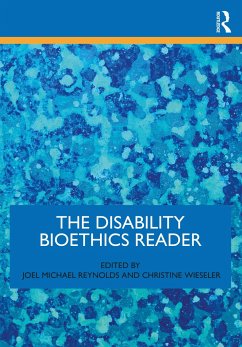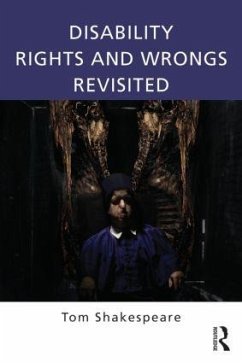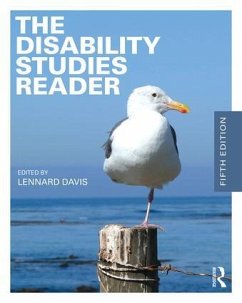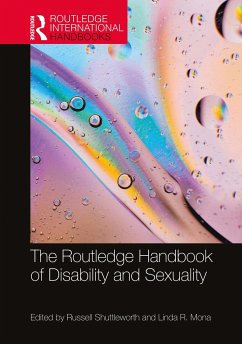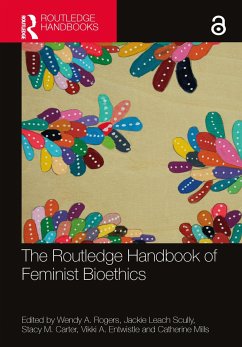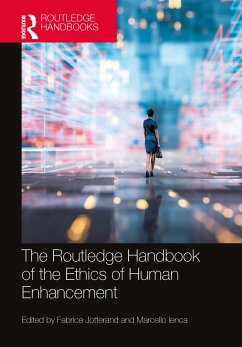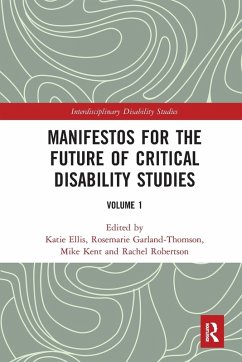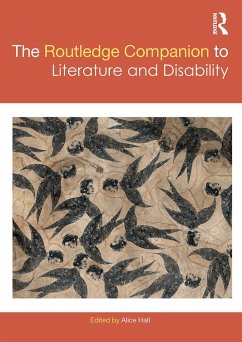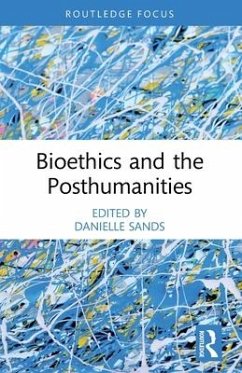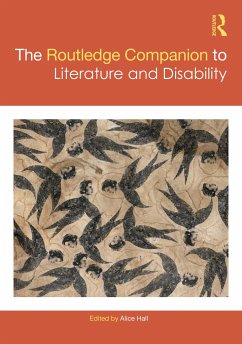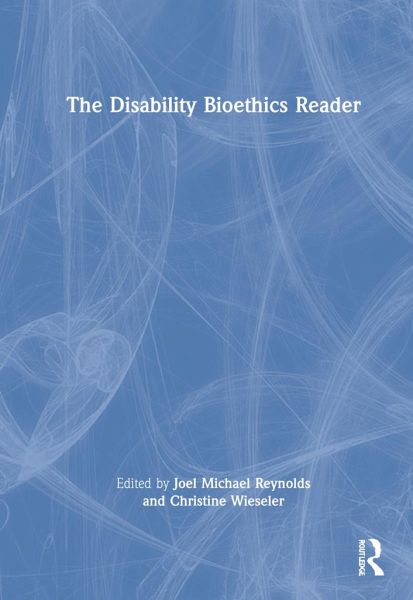
The Disability Bioethics Reader
Versandkostenfrei!
Versandfertig in 6-10 Tagen
138,99 €
inkl. MwSt.
Weitere Ausgaben:

PAYBACK Punkte
69 °P sammeln!
The Disability Bioethics Reader is the first introduction to the field of bioethics presented through the lens of critical disability studies and the philosophy of disability.Introductory and advanced textbooks in bioethics focus almost entirely on issues that disproportionately affect disabled people and that centrally deal with becoming or being disabled. However, such textbooks typically omit critical philosophical reflection on disability. Directly addressing this omission, this volume includes 36 chapters, most appearing here for the first time, that cover key areas pertaining to disabili...
The Disability Bioethics Reader is the first introduction to the field of bioethics presented through the lens of critical disability studies and the philosophy of disability.
Introductory and advanced textbooks in bioethics focus almost entirely on issues that disproportionately affect disabled people and that centrally deal with becoming or being disabled. However, such textbooks typically omit critical philosophical reflection on disability. Directly addressing this omission, this volume includes 36 chapters, most appearing here for the first time, that cover key areas pertaining to disability bioethics, such as:
state-of-the-field analyses of modern medicine, bioethics, and disability theoryhealth, disease, and the philosophy of medicineissues at the edge- and end-of-life, including physician-aid-in-dying, brain death, and minimally conscious statesenhancement and biomedical technologyinvisible disabilities, chronic pain, and chronic illnessimplicit bias and epistemic injustice in health caredisability, quality of life, and well-beingrace, disability, and healthcare justiceconnections between disability theory and aging, trans, and fat studiesprenatal testing, abortion, and reproductive justice.
The Disability Bioethics Reader, unlike traditional bioethics textbooks, also engages with decades of empirical and theoretical scholarship in disability studies-scholarship that spans the social sciences and humanities-and gives serious consideration to the history of disability activism.
Introductory and advanced textbooks in bioethics focus almost entirely on issues that disproportionately affect disabled people and that centrally deal with becoming or being disabled. However, such textbooks typically omit critical philosophical reflection on disability. Directly addressing this omission, this volume includes 36 chapters, most appearing here for the first time, that cover key areas pertaining to disability bioethics, such as:
state-of-the-field analyses of modern medicine, bioethics, and disability theoryhealth, disease, and the philosophy of medicineissues at the edge- and end-of-life, including physician-aid-in-dying, brain death, and minimally conscious statesenhancement and biomedical technologyinvisible disabilities, chronic pain, and chronic illnessimplicit bias and epistemic injustice in health caredisability, quality of life, and well-beingrace, disability, and healthcare justiceconnections between disability theory and aging, trans, and fat studiesprenatal testing, abortion, and reproductive justice.
The Disability Bioethics Reader, unlike traditional bioethics textbooks, also engages with decades of empirical and theoretical scholarship in disability studies-scholarship that spans the social sciences and humanities-and gives serious consideration to the history of disability activism.




